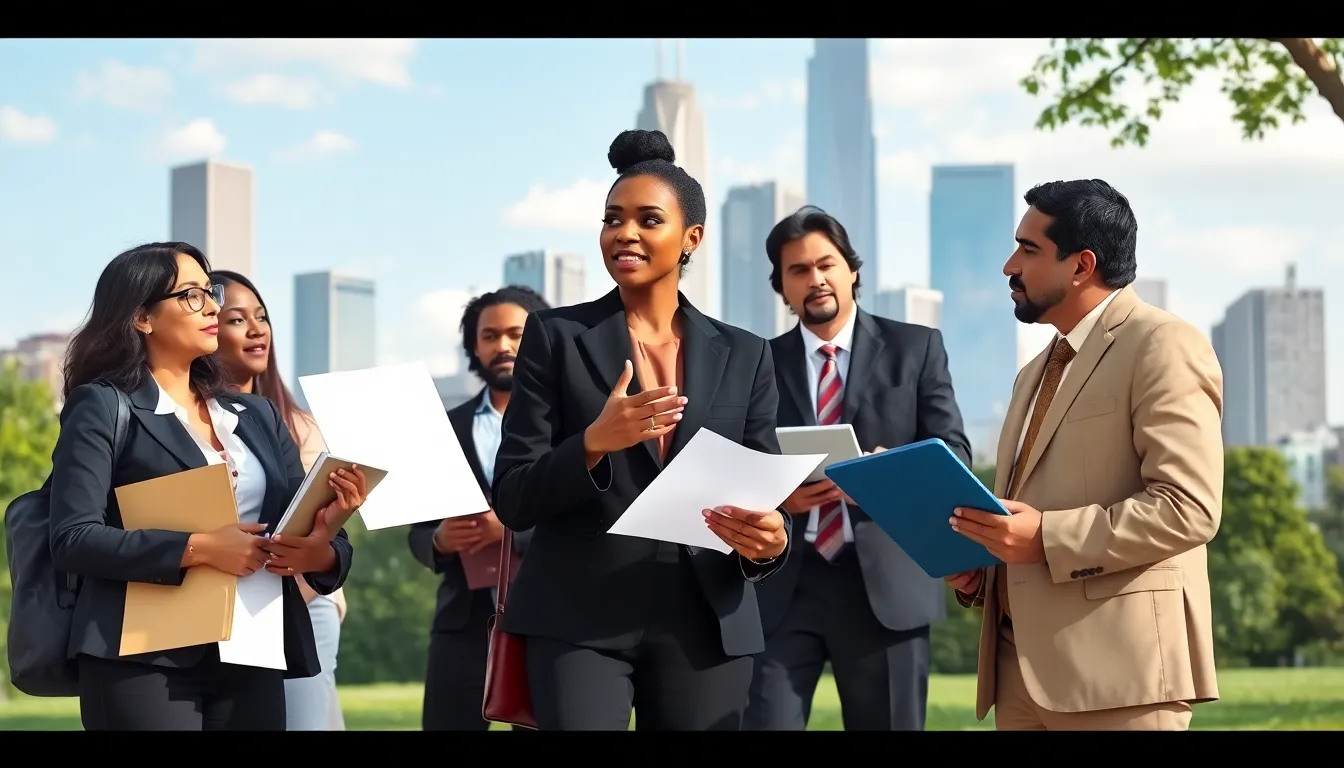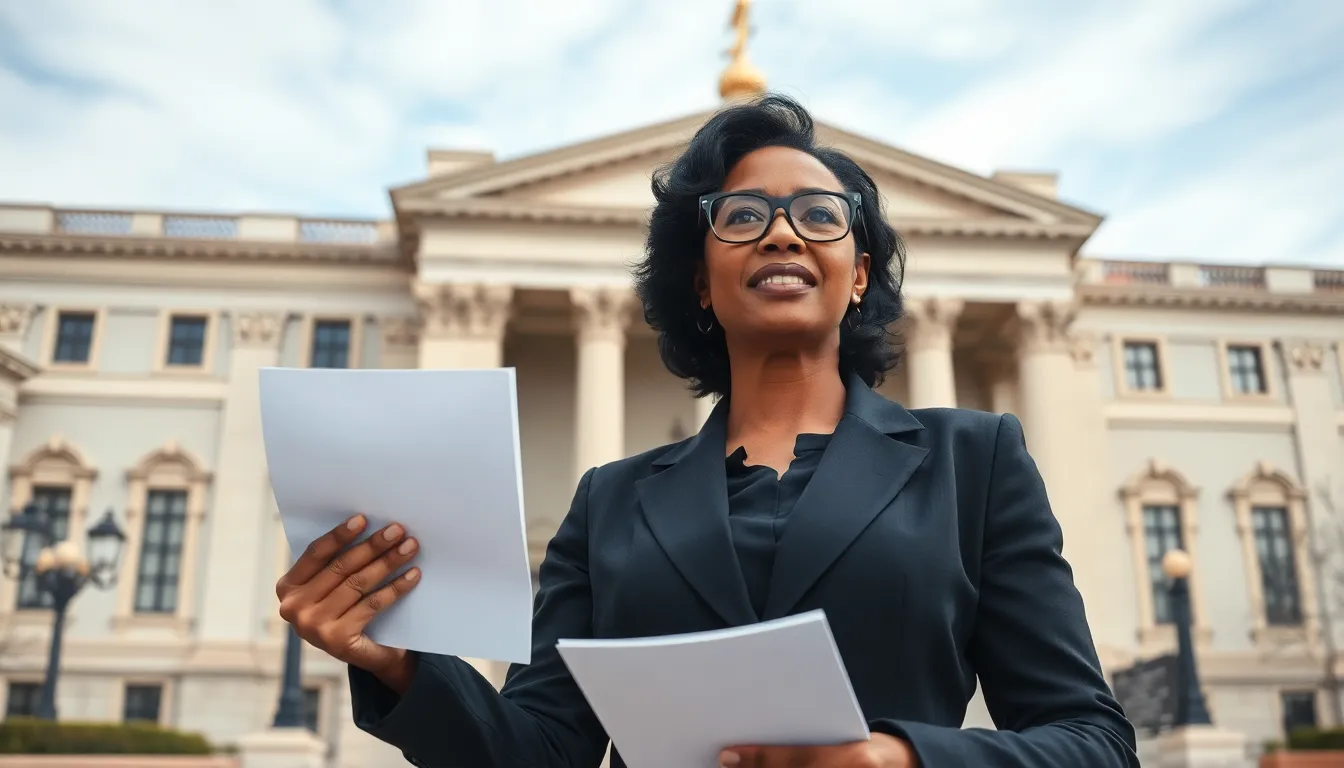In a world where injustice can sometimes feel like the default setting, human rights lawyers are the superheroes we didn’t know we needed. Armed with nothing but their legal expertise and a passion for justice, they fight tirelessly against discrimination, oppression, and inequality. Think of them as the Avengers of the courtroom—only instead of capes, they wear suits and wield law books.
These legal warriors don’t just defend the rights of individuals; they challenge the very systems that perpetuate injustice. With every case they take on, they shine a light on the darkest corners of society. So whether it’s advocating for the marginalized or standing up against oppressive regimes, human rights lawyers are on a mission to make the world a better place—one legal battle at a time. And let’s be honest, who wouldn’t want to join that fight?
Human Rights Lawyers
Human rights lawyers serve as crucial advocates for justice, focusing on defending individual freedoms and rights. These professionals specialize in various areas, including civil rights, asylum law, and discrimination cases. By using their legal expertise, they confront oppressive regimes and challenge systemic injustices.
Marginalized groups benefit significantly from the efforts of human rights lawyers. Their daily work involves representing victims of human rights abuses in courts and international tribunals. Additionally, these lawyers often engage in policy advocacy, aiming to influence legislation that promotes equality and protects vulnerable populations.
Legal battles fought by human rights lawyers often highlight societal issues that demand attention. Through these efforts, they increase awareness about injustices affecting communities worldwide. They play a significant role in educating the public about legal rights and responsibilities.
Collaborative efforts mark the path human rights lawyers take. Many partner with non-governmental organizations and international bodies to amplify their impact. This teamwork facilitates resource sharing, enhancing their capacity to address complex human rights challenges.
Ultimately, human rights lawyers strive to create a more equitable society. Their ongoing commitment to justice leads to significant improvements in the legal landscape for countless individuals. This dedication not only brings about change on a local level but also contributes to global human rights advancements.
Role of Human Rights Lawyers

Human rights lawyers play a critical role in promoting justice and protecting individual rights. They address complex legal issues while combating systemic injustices.
Legal Representation
Human rights lawyers represent clients in various legal proceedings. Victims of human rights abuses receive tailored legal support in courts and international tribunals. Effective advocacy ensures that marginalized voices are heard and protected. Many lawyers specialize in civil rights, asylum law, or discrimination cases to address specific needs. Each legal case contributes to broader changes in society.
Advocacy and Awareness
Advocacy remains a cornerstone of human rights lawyering. Human rights lawyers actively engage in public awareness campaigns to educate society about rights and responsibilities. They influence legislation by lobbying for reforms that bolster protections for vulnerable groups. Furthermore, collaboration with non-governmental organizations amplifies their impact. Achieving widespread change requires consistent efforts to highlight injustices and mobilize community support.
Challenges Faced by Human Rights Lawyers
Human rights lawyers encounter significant obstacles that challenge their efforts to promote justice and equality. Government opposition poses a major hurdle, as authorities may resist legal reforms or retaliate against advocates. Governments often employ tactics like harassment, censorship, or even imprisonment to silence lawyers. In many regions, oppressive regimes maintain control by obstructing legal processes, making it difficult for lawyers to secure fair treatment for their clients. These actions can deter potential clients from seeking legal assistance, further impeding justice efforts.
Personal risk presents another serious challenge for human rights lawyers. Often, they face threats to their safety due to their work in contentious environments. Attackers may target them directly, leading to physical harm or intimidation. Emotional distress can also result from constant vigilance against potential retaliation. In some cases, lawyers receive death threats, requiring them to adopt security measures for their protection. This constant danger makes advocacy both perilous and stressful, complicating their ability to effectively represent clients in dire situations.
Notable Human Rights Lawyers
A number of human rights lawyers have made significant contributions in the field, championing causes globally. Amal Clooney stands out for her representation of high-profile clients and her tireless advocacy for justice. Through her work, she highlights issues ranging from the plight of refugees to freedom of speech.
Bryan Stevenson is another key figure. He founded the Equal Justice Initiative, focusing on challenging racial bias in the criminal justice system. His efforts in reforming the death penalty have garnered national and international attention.
Human rights lawyer Human rights lawyer Asha R. K. Radhakrishnan specializes in women’s rights and has played a pivotal role in advocating for gender equality in numerous countries. Her work emphasizes the need for legal reforms to protect women’s rights in various societal contexts.
In addition, John Dugard has made a significant impact within international law. He served as a UN Special Rapporteur, focusing on the human rights situation in Palestine while remaining an influential voice against apartheid.
Another notable figure is Mary Robinson, former UN High Commissioner for Human Rights. She has consistently advocated for climate justice, linking environmental issues to human rights, and has inspired numerous movements worldwide.
Lastly, Fiona McKay is recognized for her focus on indigenous rights. She has worked with indigenous communities to challenge inequities and empower marginalized groups through collective legal action.
These individuals exemplify the dedication and expertise present in the field of human rights law. Each lawyer, through their unique focus and track record, contributes to the broader fight for justice and social equity.
Conclusion
Human rights lawyers embody the relentless pursuit of justice in a world that often overlooks the vulnerable. Their unwavering commitment to advocating for marginalized communities not only addresses immediate injustices but also fosters long-term societal change. By navigating complex legal landscapes and challenging oppressive systems, they amplify the voices of those who might otherwise remain unheard.
Despite facing significant challenges, their courage and dedication inspire others to join the fight for equality and justice. Each case they take on serves as a reminder of the importance of protecting human rights globally. As they continue to shine a light on injustices, the impact of their work resonates far beyond the courtroom, paving the way for a more just and equitable future.

